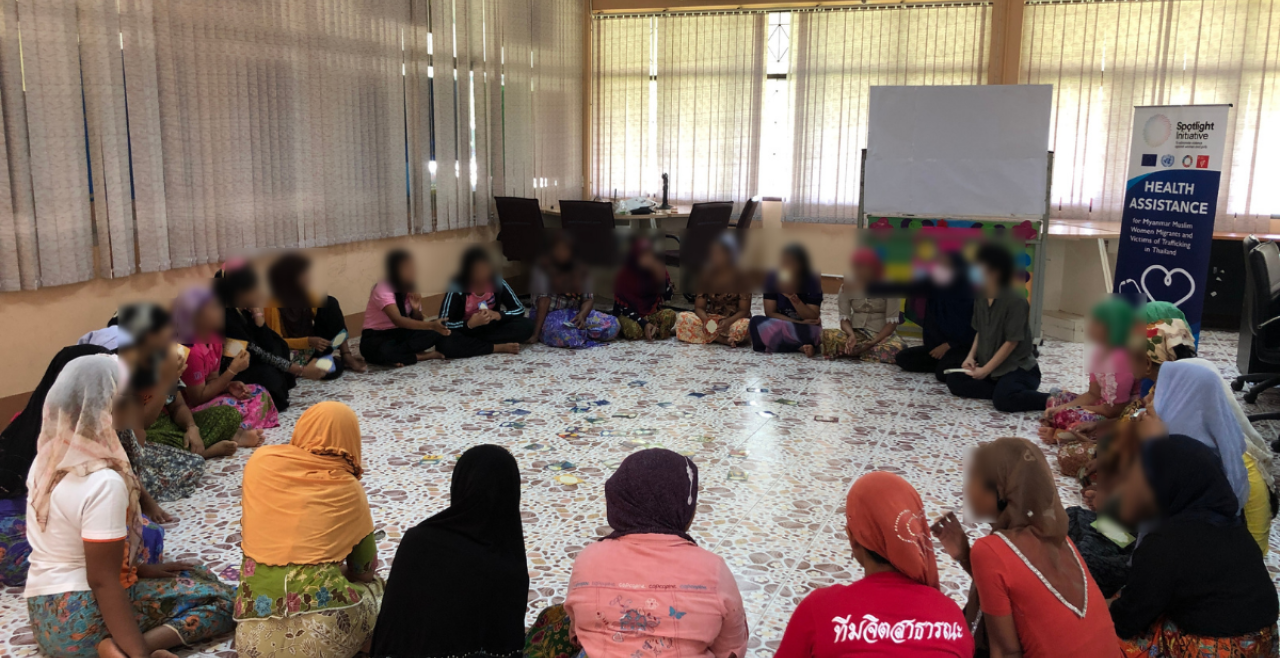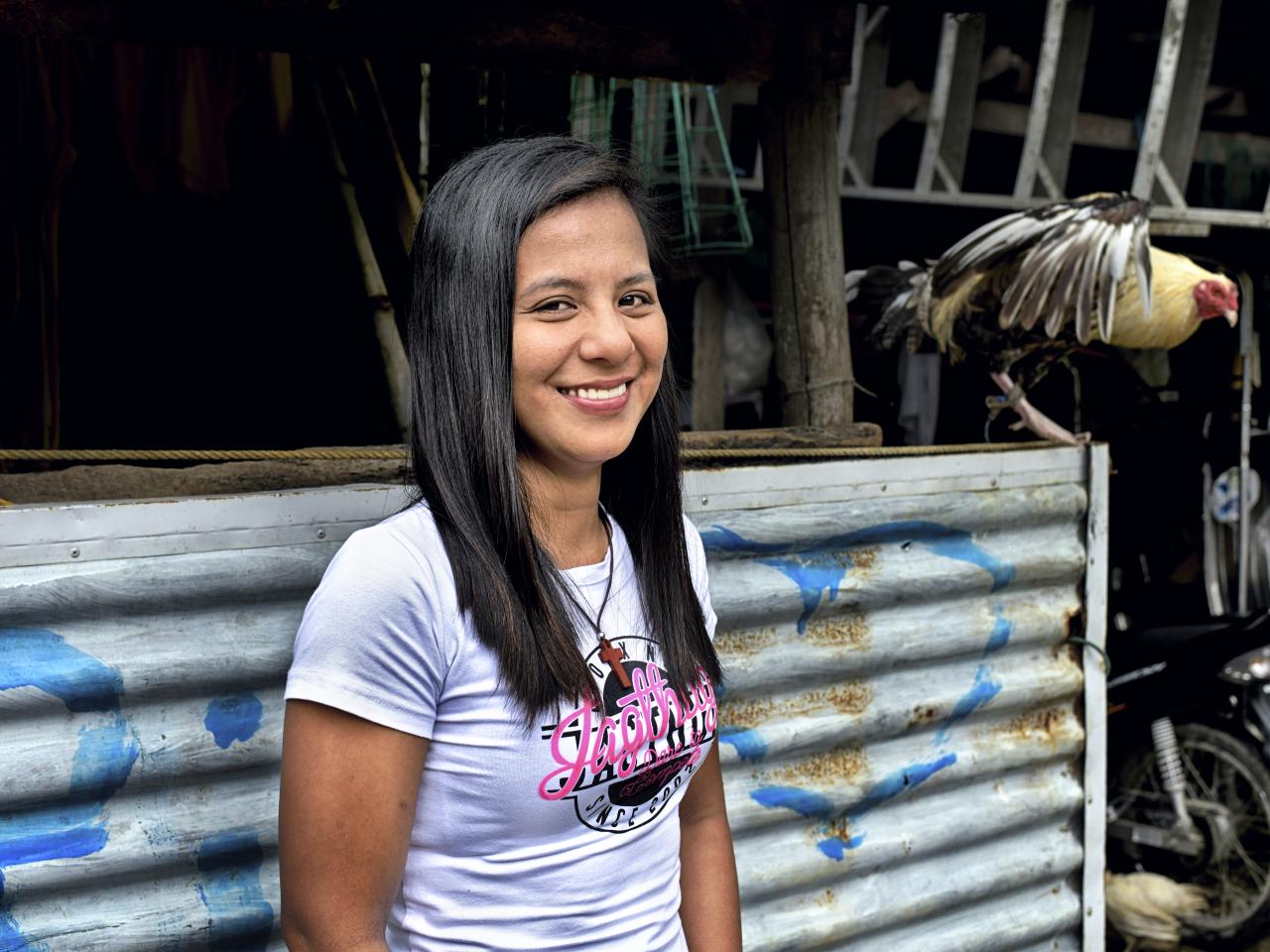In Thailand, stopping trafficking in persons before it begins

SURAT THANI, Thailand - Phatthanapong Promphuttha is Chief of Social Work at the Welfare Protection Centre for Victims of Trafficking (WPCVOT) in Surat Thani, a southern province of Thailand. Established under the Ministry of Social Development and Human Security, the centre runs a shelter for women survivors of trafficking, provides legal and psychological counselling services and organizes training sessions.
“I’ve worked as a social worker for five years now,” says Mr. Promphuttha. “It’s been my passion since I was a student to help those in need.”
"All survivors of trafficking need to be recognized and treated as victims of a crime and not as criminals.” - Chief of Social Work, Phatthanapong Promphuttha
Mr. Promphuttha leads a team of social workers who develop programmes that respond to the unique needs of the survivors and support their social, physical and psychological recovery. These include referring survivors to specialized services such as legal services, medical and psychosocial support, and offering assistance in claiming compensation.
“Whatever their individual needs, the one thing all survivors of trafficking have in common is the need to be recognized and treated as victims of a crime, and not as criminals,” he says.
Many women migrant workers at the centre had not previously been aware of the exploitative practices used by traffickers to lure migrant workers overseas.
"They did not know where to acquire knowledge about safe migration and the information they needed to make informed decisions or to seek help," he says. “Without accurate and credible information, they can be at risk of violence, exploitation and trafficking.”
In East Asia and the Pacific, about half of detected victims of trafficking are adult women, according to the United Nations Office on Drugs and Crime (UNODC). Thailand, following the latest US Trafficking in Persons (TIP) Report, is now on the Tier 2 Watchlist. Trafficking is a grave violation of human rights and a form of violence against women and girls. While trafficking in persons is most often associated with sexual exploitation, it has many forms, including domestic servitude and forced labour.
“With the support of the Safe and Fair Programme, our activities with IOM assist victims of trafficking, not only to provide psychosocial support but also a learning journey towards economic empowerment, safe migration and women’s empowerment,” he says.
Women survivors are involved in designing the activities that support their road to rehabilitation. This includes life and vocational skills training such as cooking, story-sharing and self-exploration through arts and group discussion.
“We focus on bringing out personal and collective change in survivors of trafficking by listening to their needs." - Chief of Social Work Phatthanapong Promphuttha
“We focus on bringing out personal and collective change in survivors of trafficking by listening to their needs and empowering individuals, guided by the principles of human rights and dignity,” says Mr. Promphuttha. “As they are involved in the process of designing the activities, they gain more self-esteem and feel empowered.”
“There was a case of one survivor of trafficking who has been assisted successfully to integrate into a new community in a third country. Today she is quite happy living in a safe environment and continues her life with confidence. It fulfils and motivates me when I see that the survivors of trafficking are empowered and can confidently begin their new lives.”
Under the global EU-UN Spotlight Initiative to eliminate violence against women and girls, the joint ILO-UN Women Safe and Fair Programme, in collaboration with UNODC, has contributed to building the capacity of front-line service providers, including shelters and helpline staff, civil society organziations, women’s organizations, trade unions, Migrant Worker Resource Centres and staff at quarantine facilities. In Thailand, Safe and Fair provides direct support to shelters for trafficked persons and contributes to building the capacity of the Thai Government service providers to ensure sustainability of activities, including through the IOM project “Psychosocial Support to Women Victims of Trafficking in Thailand.”
"By ensuring that their voices and needs of the survivors are heard and that they are at the heart of our response, we can better understand their situation and empathize with them. With more knowledge and understanding, we can prevent trafficking in persons even before it begins."
By Pichit Phromkade

